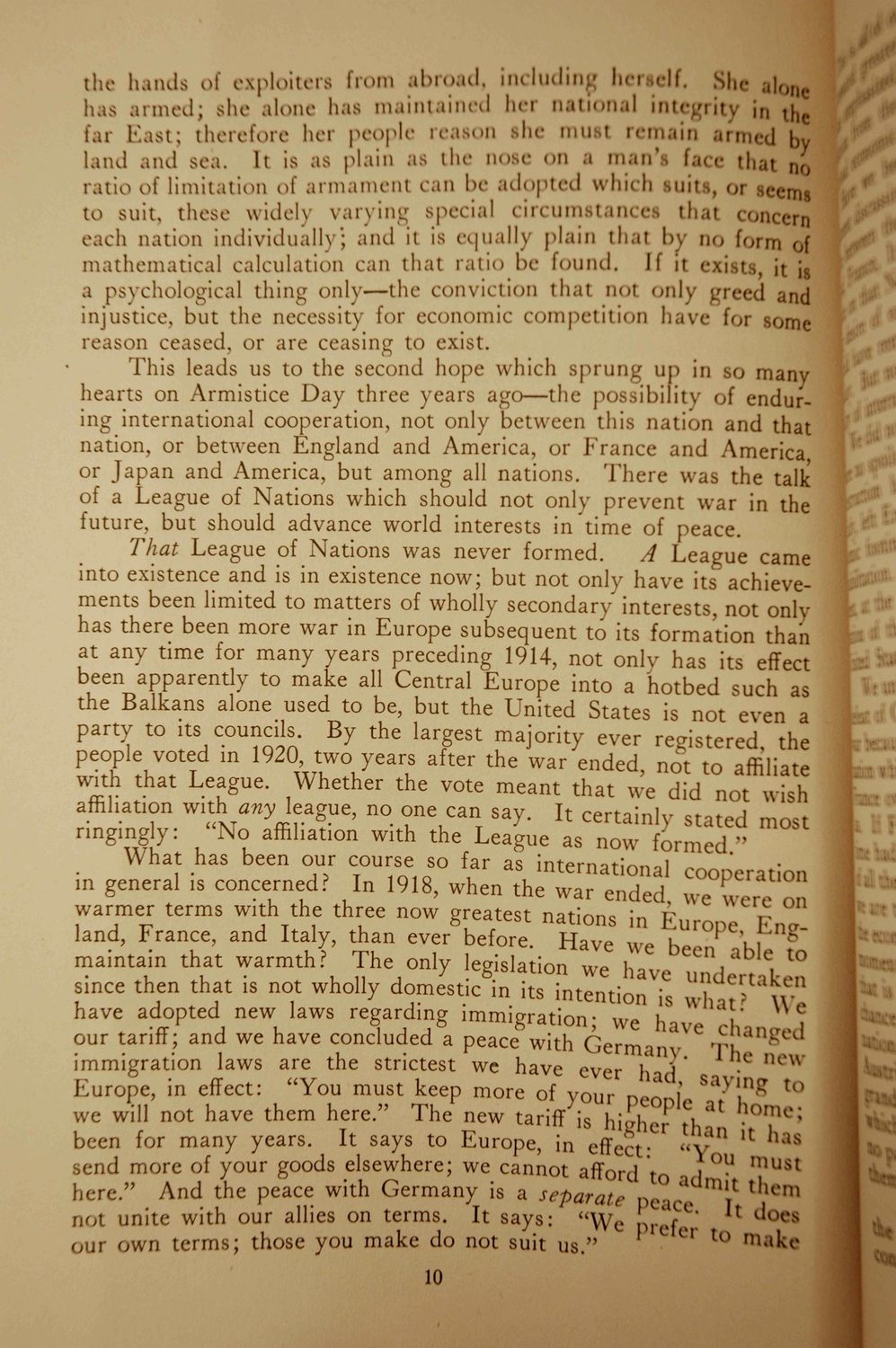| |
| |
Caption: Convocation - 1921 (Armistice Day)
This is a reduced-resolution page image for fast online browsing.

EXTRACTED TEXT FROM PAGE:
the hands of exploiters from abi id, includin h<-i if. She alone has armed; she alone has maintained her national mi >,'ny i |1C far East; therefore her people reason she UMIM I mai ,rmed bv land and sea. It is as plain as the nose O a n u n ' , fac H hat QQ ratio of limitation of armament can be adopted which nit <)t crTl8 to suit, these widely varying special ci ten instance* that concern each nation individually; and it is equally plain that by no form of mathematical calculation can that ratio be found. If it exists, it jg a psychological thing only—the conviction that not 11 y gre< 1 j injustice, but the necessity for economic competition have foi ne reason ceased, or are ceasing to exist. This leads us to the second hope which sprung up in so many hearts on Armistice Day three years ago—the p< sibility of endui ing international cooperation, not only between this nation and that nation, or between England and America, or France and America or Japan and America, but among all nations. There was the talk of a League of Nations which should not onlv prevent war in the future, but should advance world interests in time of peace. That League of Nations was never formed. A League came into existence and is in existence now; but not only have its achievements been limited to matters of wholly secondary interests, not onlv has there been more war in Europe subsequent to its formation than at any time for many years preceding 1914, not onlv has its effect been apparently to make all Central Europe into a hotbed such as the Balkans alone used to be, but the United States is not even a partv to ^s councils. By the largest majority ever registered, the people voted in 192C, two years after the war ended, not to affiliate W gUe Whether the v ir ? ' , °te meant that we did not wish affiliation with any league, no one can say. It certainly stated most ringingly: No affiliation with the League as now formed » What has been our course so far as international cooperation in general is concerned? In 1918, when the war ended we were o warmer terms with the three now greatest nations in Europe En*" land, France, and Italy, than ever before. Have we b m ,K f maintain that warmth? The only legislation we h ^ Z ^ since then that is not wholly domestic in its intention is 1 ' u have adopted new laws regarding immigration; we have changed our tariff; and we have concluded a peace with Germanv T ' M U immigration laws are the strictest we have ever h l • ° Sa 1 n to Europe, in effect: "You must keep more of V our wf>ll» / , 8 CJ we will not have them here." The new tariff's higher tl • US been for many years. It says to Europe, in effect* "Y '* * l end more of your goods elsewhere; we cannot afford to • 1 ° " *?' I,U m here." And the peace with Germany is a separate peac ""i* ' ( 0e8 not unit with our allies on terms. It says: "\Ve mt'iV* CI Kl our own terms; those you make do not suit us." • ' ° " ^e 10
| |